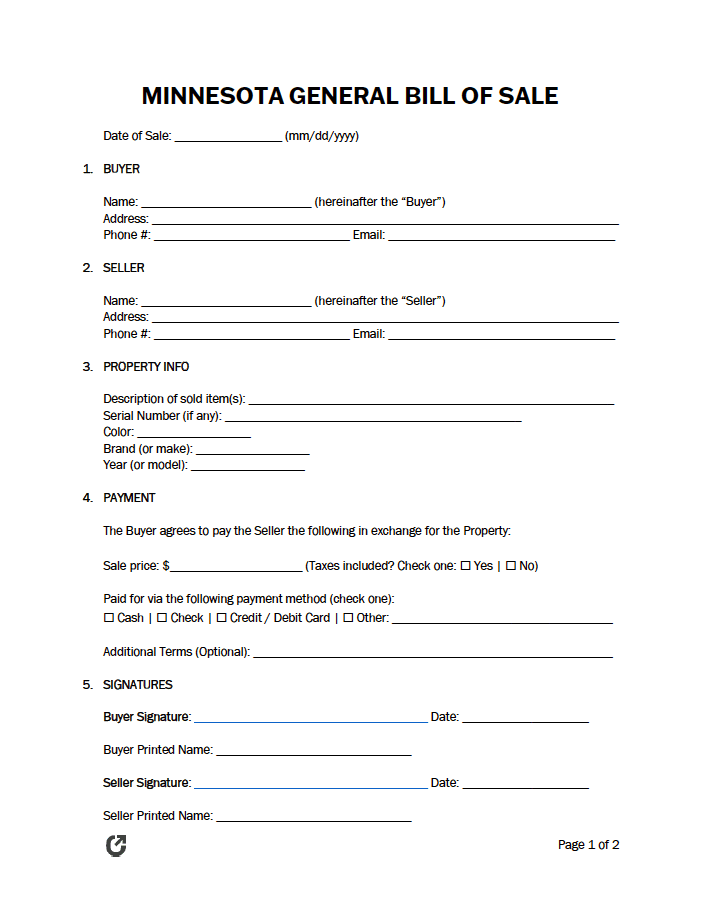Minnesota General Bill of Sale Form
A Minnesota general bill of sale form is a supporting document when reallocating a generic item. The transaction can happen between private parties, businesses, or entities. If a company’s representative completes the form, they must enter their credentials, in addition to that of the business. Overall, the bill of sale offers confirmation of the transaction and enables the buyer and seller to exchange contact information, thus allowing them to contact each other after the deal.
| Signing Requirements: The transferor and transferee must inscribe to validate the form. |
What is a Minnesota General Bill of Sale?
A Minnesota general bill of sale is completed by two (2) parties when transferring personal property. The item must qualify as “general,” meaning it does not fit better under another category. For example, a breeder would download and complete a dog bill of sale when selling a canine. However, they would use a general bill of sale when selling miscellaneous items, like signed baseball cards or picture frames.
The form only holds validity if both parties provide accurate information and sign in the appropriate fields. They must also enter the item’s value, the day of the purchase, and the signing date. Each person should safely store a copy of the document for their records to prove ownership and verify the agreement.
Do I Need a Minnesota Bill of Sale?
No, the state of Minnesota does not require the buyer or seller to complete a bill of sale form. Residents do not need it to transfer a title and register their boat or car. Nonetheless, it can assist in proving ownership and the exchange of funds. Therefore, individuals should consider filling out a bill of sale during any transaction. This step protects both parties from legal claims and accusations concerning the item sold.
Should I Notarize My Bill of Sale?
No, Minnesota law does not mandate the notarization of bill of sale forms. While not required, the state suggests that residents have their documents notarized. This seal of approval signifies the document’s authenticity and the pact between both parties. The buyer and seller can also have a witness sign the form in place of a notary public. The witness’ signature serves the same purpose as notarization.
